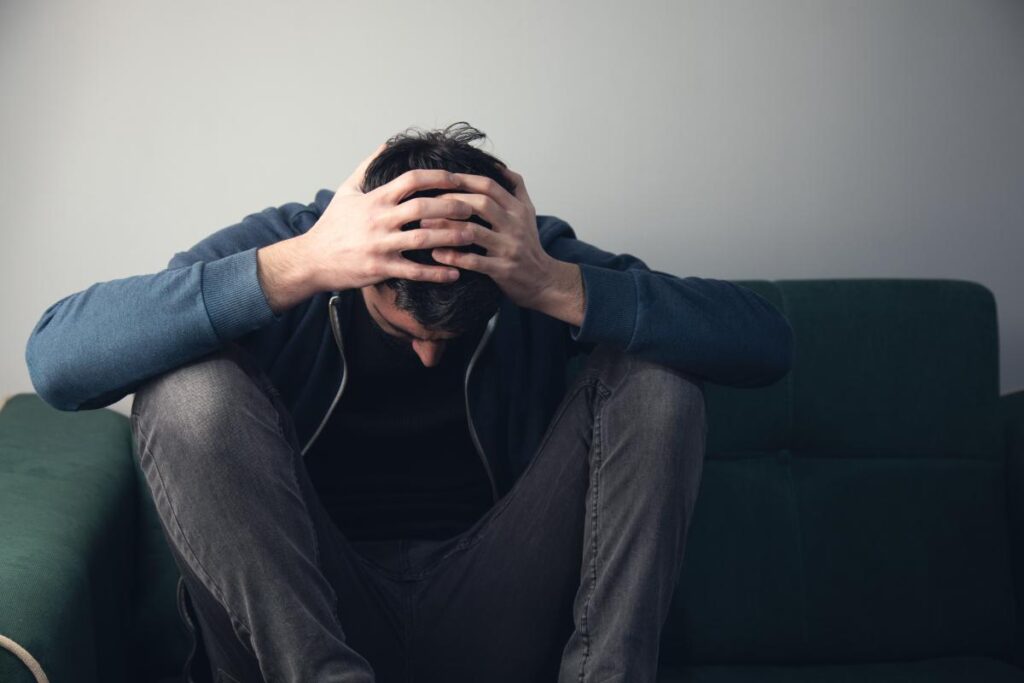If someone is showing signs of a cocaine overdose, call 911 immediately.
A cocaine overdose is a risk for anyone using the drug, regardless of how they consume it. The risk of overdose increases when cocaine is used with other drugs, alcohol, or by people with mental health conditions. Knowing the signs of a cocaine overdose and calling 911 right away can save a life. And for those who are struggling with addiction, getting help from our Mississippi cocaine addiction treatment center can be the first step on the road to recovery.
Treatment can help prevent overdoses and save lives. If you’re struggling with cocaine addiction, call Woodland Recovery Center at 662.222.2989 to learn more.
Why Does Cocaine Overdose Happen?
Cocaine is a potent central nervous system stimulant. It can have detrimental effects when consumed in excessive quantities or when combined with other substances like drugs or alcohol.
The risk of a cocaine overdose significantly increases, especially in individuals who have developed a tolerance due to prolonged cocaine use. It is crucial to be aware of the potential dangers associated with this drug and its long-term impact on the user’s health and well-being.
What Does a Cocaine Overdose Look Like?
An overdose of cocaine has physiological, psychological, and physical symptoms.
Stage One
Cocaine overdose can cause something called acute cocaine toxicity. This speeds up the central nervous system, among other areas of the body. This usually is described in stages, with stage one symptoms including:
- Headache
- Nausea
- Rapid breathing
- Hallucinations (seeing and hearing things that aren’t there)
- Increased blood pressure
Stage Two
People in stage one could become dangerous as they may have frequent mood changes. Stage two symptoms can be more dangerous as the person can experience:
- Seizures
- Hypertension
- Rapid breathing
- High body temperature (hyperthermia)
Stage Three
The most dangerous form of this is the final stage, stage three, with symptoms including:
- Loss of vital functions
- Coma
- Heart attack
- Respiratory failure
This is where a person’s life is in jeopardy. Medical attention will be needed, and permanent changes to one’s body and organs are a possibility. The amount of cocaine that a person can take to overdose varies. While taking larger amounts (over 100 milligrams) of cocaine increases the chance of overdose, there are a few instances where even taking a small amount of cocaine (up to 100 milligrams) can cause an overdose.
There are different ways to ingest cocaine into the body as well. The way cocaine is ingested determines how quickly the effects of cocaine begin. The most common form of ingesting cocaine is through snorting it, but injection is also popular. Inhaling cocaine, also known as freebasing, is the most dangerous form of ingestion as it enters the bloodstream faster.
Crack Overdose
Overdosing on crack cocaine is a possibility as well. Much like cocaine, someone can overdose on crack even if it is their first time taking it. Because users mainly smoke crack, addiction seems to develop more quickly. Along with the effects of cocaine, people who take crack can experience shortness of breath and bleeding in the lungs. Crack overdose symptoms may include:
- Seizures
- Stroke
- Coughing up black blood
- Itchiness
Immediately dial 911 if you believe someone is overdosing.
Cocaine Overdose Response
If you are with someone who is overdosing on cocaine, do your best to stay calm. It is normal to feel scared, but you will need to remain calm to help the person out. The first thing to do if a person is overdosing on cocaine is to dial 911. Currently, there are no medications that prevent cocaine overdose, but medical professionals will know what to do.
Stay on the phone with the 911 operator until someone comes to help, and do what the 911 operator says. You’ll want to turn the person on their side if they are having a seizure or throwing up. This will keep their airways clear. Remove immediate dangers as well. Remove sharp objects or heavy objects from high places that could hurt the victim. Remember that cocaine overdose is serious and can happen to anyone consuming the drug.
Cocaine Addiction Treatment
Treatment for cocaine use disorder varies. Currently, there are no approved medications for cocaine addiction treatment like those used for opioid and alcohol use disorders. Inpatient treatment is recommended to begin cocaine addiction treatment, as the detox process can be challenging without medical supervision. Inpatient treatment provides clients with trained medical professionals who can respond to withdrawal symptoms.
Outpatient treatment follows inpatient treatment and allows clients to continue treatment while sleeping at home instead of at the facility. Regardless of facility duration, evidence-based treatments such as one-on-one counseling, family therapy, and group therapy are essential in cocaine addiction treatment. These treatments address the underlying reasons for addiction and help reshape the thought process related to cocaine consumption as a coping mechanism.
Woodland Recovery Center Is Here to Help
Woodland Recovery Center can help you or your loved one overcome cocaine addiction. Call us today at 662.222.2989 to learn more about ways we can help.



